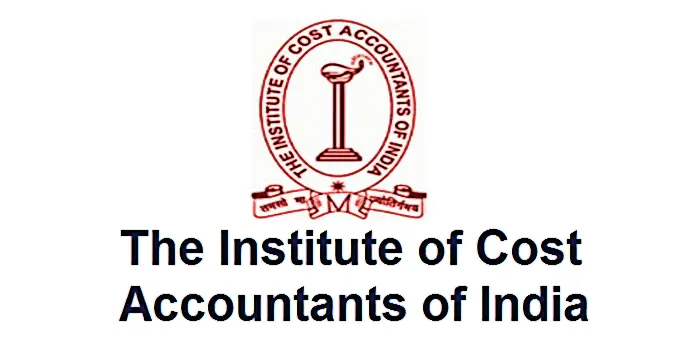
PC3004 - CERTIFIED MANAGEMENT ACCOUNTANT(CMA)
Part 1: Your Guide to a Career in Management Accounting
Unlock Your Future in Business Leadership with CMA (India)!
Your Comprehensive Guide from Mercury Edutech Academy
Welcome, aspiring business leaders and finance professionals!
At Mercury Edutech Academy in Nagercoil, we are experts in building careers in finance. While many know about Chartered Accountancy (CA), there is another equally prestigious and powerful qualification: CMA (Cost and Management Accountant).
If you are interested in the "how" and "why" behind business numbers and want to be part of strategic decision-making, a CMA qualification is your perfect match. This guide will explain everything about the CMA (India) course.
What is a CMA (Cost and Management Accountant)?
A Cost and Management Accountant (CMA) is a professional certified by The Institute of Cost Accountants of India (ICMAI).
Think of it this way: While a CA often focuses on audit, taxation, and financial reporting (looking at the past), a CMA is a key part of the management team (looking at the future).


CMAs are experts in:
- Cost Management: Finding the most efficient way to produce a product or service.
- Budgeting & Planning: Creating financial roadmaps for the company.
- Performance Analysis: Measuring how well the company is doing against its goals.
- Strategic Decision-Making: Helping leadership decide on pricing, new investments, and business strategy.
They are the financial experts inside the business, driving profitability and growth from within.
Why Should You Choose a Career as a CMA?
- High Industry Demand: CMAs are essential in the manufacturing, service, IT, and public sectors.
- Strategic Role: You move beyond just accounting to become a core part of the business strategy team.
- Versatile Career Paths: Your skills are needed in roles like Cost Controller, Financial Analyst, Chief Financial Officer (CFO), and Management Consultant.
- Global Recognition: The ICMAI has MOUs (Memoranda of Understanding) with international accounting bodies, giving your qualification global standing.


The CMA (India) Journey: Your 3-Step Path to Success
The path to becoming a CMA is structured in three clear levels, just like CA and CS.
- Level 1: CMA Foundation
- This is the entry-level test, building your base in the fundamentals of business and accounting.
- Level 2: CMA Intermediate
- This level provides in-depth, working knowledge of cost accounting, taxation, and corporate law.
- Level 3: CMA Final
- This is the expert level, focusing on strategic financial management, cost audits, and advanced decision-making.
How to Get Started: Two Paths to Your CMA Career
You can begin your CMA journey through two different routes, depending on your current education.
|
Feature |
Foundation Route |
Direct Entry Route |
|
Who is it for? |
Students who have just passed or appeared for their Class 12 exams (any stream). |
Graduates, Post-Graduates, or other qualified professionals. |
|
Starting Level |
CMA Foundation |
CMA Intermediate (You skip the Foundation exam!) |
|
Eligibility |
Passed Class 10 + Passed/Appeared for 10+2. |
* Passed Graduation (any stream) OR
* Passed CA Intermediate / CS Foundation. |
A Closer Look at the CMA Levels (New Syllabus)

1. CMA Foundation
This is your starting point, designed to build a strong base.
- Eligibility: Must have passed Class 10 and passed (or appeared for) Class 12.
- Papers (4 Total):
- Paper 1: Fundamentals of Business Laws and Business Communication
- Paper 2: Fundamentals of Financial and Cost Accounting
- Paper 3: Fundamentals of Business Mathematics and Statistics
- Paper 4: Fundamentals of Business Economics and Management
2. CMA Intermediate
Here you dive deep into the core technical skills of a CMA. This level is split into two groups.
- Eligibility: Must have passed CMA Foundation OR be eligible for the Direct Entry route.
- Group I Subjects:
- Paper 5: Business Laws and Ethics
- Paper 6: Financial Accounting
- Paper 7: Direct and Indirect Taxation
- Paper 8: Cost Accounting
- Group II Subjects:
- Paper 9: Operations Management and Strategic Management
- Paper 10: Corporate Accounting and Auditing
- Paper 11: Financial Management and Business Data Analytics
- Paper 12: Management Accounting


3. CMA Final
This is the expert level that prepares you for senior leadership roles.
- Eligibility: Must have passed both groups of the CMA Intermediate.
- Group III Subjects:
- Paper 13: Corporate and Economic Laws
- Paper 14: Strategic Financial Management
- Paper 15: Direct Tax Laws and International Taxation
- Paper 16: Strategic Cost Management
- Group IV Subjects:
- Paper 17: Cost and Management Audit
- Paper 18: Corporate Financial Reporting
- Paper 19: Indirect Tax Laws and Practice
- Paper 20: One Elective Paper (e.g., Strategic Performance Management, Risk Management, etc.)
Mandatory Practical Training (SAP)
Similar to articleship in CA, the CMA course requires 15 months of mandatory practical training (known as Skills and Practical Training - SAP). This hands-on experience is crucial and can be completed before or during your Final exams, making you job-ready the moment you qualify.
.


Why Choose Mercury Edutech Academy for Your CMA Training?
At Mercury Edutech Academy, we don't just teach; we build careers. As Nagercoil's premier training center for a full range of accounting courses (CA, CMA, ACCA, etc.), we provide a unique advantage.
- Expert Faculty: Learn from qualified CMAs and industry experts who understand the syllabus inside and out.
- Comprehensive Study Material: We simplify complex topics into easy-to-understand notes and practice questions.
- Rigorous Mock Tests: Our exam-style mock tests prepare you for the pressure and pattern of the real CMA exams.
- Personalized Mentorship: We keep our batches small to give you the one-on-one attention you need to succeed.
- Holistic Approach: We train you with a multi-disciplinary mindset, understanding how CMA, CA, and CS roles work together in the real world.
Ready to become a strategic leader in the world of finance?
Contact Mercury Edutech Academy today for a free counseling session and let's build your future, together.
Frequently asked questions
Here are some common questions about our company and services.
A.THE BASICS OF CMA(INDIA)
CMA stands for Cost and Management Accountant .
The CMA course is conducted by The Institute of Cost Accountants of India (ICMAI), which is a statutory body established by an Act of Parliament .
A CMA is a management-level expert who focuses on cost management, budgeting, financial planning, and strategic decision-making to help a company run profitably and efficiently .
- CA (Chartered Accountant): Focuses on financial accounting, auditing, and taxation.
- CS (Company Secretary): Focuses on corporate law, governance, and legal compliance.
- CMA (Cost & Management Accountant): Focuses on cost control, management accounting, and business strategy.
Yes,
CA, CS, and CMA are all considered prestigious and equivalent
professional-level qualifications in India, each with its own specialized
domain
.
Yes,
the ICMAI has agreements and MOUs with many international accounting bodies
(like CIMA, IMA), which provides recognition and opportunities for members to
work abroad
.
Yes,
absolutely. The CMA course syllabus complements a B.Com degree very well and is
a popular combination for students
.
Yes.
The CMA (India) is offered by ICMAI. The CMA (US) is offered by the Institute
of Management Accountants (IMA), USA. Both are respected, but the Indian CMA is
more focused on Indian laws and accounting standards. (Mercury Edutech Academy
offers training for both!) .
Math
is part of the CMA Foundation level (Paper 3). However, it is business-focused
mathematics and statistics, not advanced pure math. Students from all streams
can manage it with dedicated preparation
.
Strong
analytical skills, financial planning, strategic thinking, problem-solving, and
communication skills
.
B. Eligibility and Registration
There are three levels: CMA Foundation, CMA Intermediate, and CMA Final.
Anyone who has passed Class 10 and has passed (or appeared for) their Class 12 (10+2) examinations from a recognized board .
Direct Entry allows you to skip the CMA Foundation exam and start directly at the CMA Intermediate level .
You are eligible for direct entry if you have:
- Passed a graduation degree in any stream (e.g., B.Com, BBA, B.E.).
- Passed the Intermediate level of the CA (ICAI) or CS (ICSI) course .
Registration
is done online through the official ICMAI website
.
Registration
is open throughout the year. However, there are cut-off dates to be eligible
for a specific exam attempt
.
- To appear for the June term exam, you must register by January 31st of the same year.
- To appear for the December term exam, you
must register by July 31st of the same year
.
The fees are set by ICMAI and are subject to change. As of the recent syllabus, the fees are approximately:
- Foundation: ₹6,000
- Intermediate: ₹23,100
- Final: ₹25,000
(Note: Always verify the current fee
structure on the official ICMAI website.).
- Foundation registration is valid for 3 years.
- Intermediate registration is valid for 7 years.
- Final registration is valid for 7 years.
You'll
need your passport-sized photo, signature, and scanned copies of your 10th and
12th mark sheets (for Foundation) or your graduation mark sheets (for Direct
Entry)
.
C. EXAMS AND SYLLABUS
CMA exams for all levels are held twice a year, once in June and once in December .
The Foundation exam consists of 4 papers. The exams are typically computer-based, objective-type (MCQ) tests.
There are 8 subjects, divided into two groups of 4 papers each .
There are 8 subjects, divided into two groups of 4 papers each (including one elective paper).
The
exams for Intermediate and Final are typically offline, descriptive (written)
exams, with each paper being 3 hours long and for 100 marks
.
- Foundation: No negative marking.
- Intermediate & Final: There is no negative marking in the main
descriptive exams
.
To pass any level, you must meet both conditions:
- A minimum of 40% marks in each individual paper.
- A minimum of 50% marks in aggregate
(overall average) of the group
.
Yes,
you have the flexibility to appear for either a single group or both groups
together
.
You
get the benefit of "set-off." If you get more than 50% aggregate in
one group but fail the other, the extra marks from your passed group can be
used to make up the deficit in the failed group, helping you pass both .
If
you appear for a group and fail, but you score 60% or more in any paper, you
are "exempt" from writing that paper for the next three attempts .
D. PRACTICAL TRAINING AND PREPARATION
It is a mandatory training period called SAP (Skills and Practical Training) where you get 15 months of hands-on work experience in a relevant industry or under a practicing CMA .
Yes, you must complete the 15 months of training to be eligible for your final CMA membership after passing the Final exam .
You can complete your training before your Final exam or after your Final exam, but it must be completed before applying for membership .
The ICMAI also mandates completing certain computer and soft-skills training sessions (like SAP Finance, Tally, etc.) to make students job-ready .
On
average, a dedicated student needs about 4-6 months of focused preparation for
a single group of CMA Intermediate or Final
.
While
self-study is possible, it is highly challenging. Joining a reputed coaching
institute like Mercury Edutech Academy provides structured guidance, expert
doubt-solving, and a clear path to success .
Focus
on understanding the concepts, making your own notes, and practicing writing
answers. Use keywords and section numbers for better marks .
Practice,
practice, practice! Solve every problem in the ICMAI study material, plus past
exam papers and mock tests .
Yes,
it is one of the most important preparation strategies. It helps you understand
the exam pattern, important topics, and time management
.
The
pass percentage varies with each attempt but is generally between 10% and 20%
for the Final and 15% and 25% for the Intermediate, which shows the high
standard of the exam .
E. CAREER,SCOPE AND OPPORTUNITIES
CMAs are hired in roles like Cost Accountant, Financial Analyst, Finance Manager, Cost Controller, Budget Analyst, Chief Financial Officer (CFO), and Management Consultant .
CMAs are in high demand in the manufacturing sector, IT, engineering, public sector undertakings (PSUs), banking, and service industries .
Yes! A qualified CMA can get a "Certificate of Practice" (COP) from ICMAI and start their own practice, specializing in Cost Audits, GST Audits, and management consultancy .
A Cost Audit is an audit of the cost records of a company, which is mandatory for certain companies in specific industries (like manufacturing, pharma, etc.). Only a practicing CMA can conduct a Cost Audit .
A
freshly qualified CMA can expect an average starting salary package ranging
from ₹6 lakhs to ₹10 lakhs per annum. This can increase significantly with
experience .
Yes,
CMAs are highly sought after in Public Sector Undertakings (PSUs) and for
various roles in government financial departments .
Yes.
While commerce students have a slight head start, the Foundation level is
designed to teach the basics to students from all streams. With dedication,
anyone can succeed .
Yes,
many companies hire CMA Inter-qualified students for junior and mid-level
accounting and finance roles. Passing the Intermediate level itself is a
valuable qualification
.
CMAs
play a massive role in GST, including GST registration, compliance, and GST
Audits (as prescribed by law) .
Mercury
Edutech Academy is Nagercoil's leading finance training center. We provide
expert faculty who are qualified professionals, personalized attention, and a
rigorous test series to ensure you don't just pass, but excel in your CMA exams .